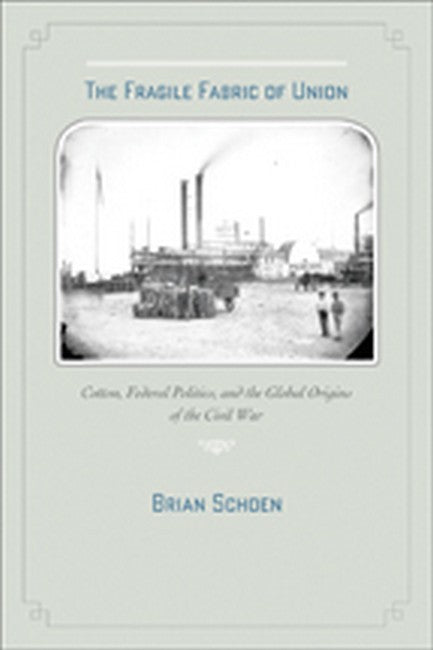Series Editor's Foreword
Acknowledgments
Introduction
Prologue, 178
1. The Threads of a Global Loom: Cotton, Slavery, and Union in an Interdependent Atlantic, 17891820
Cotton, Empire, and Nation
The Formation of a Transatlantic Cotton Interest
Cotton's ""Revolution"" and Its Limits
2. Calculating the Cost of Union: Nationalism and Sectionalism in a Republican Era, 17961818
The Cotton South and a Republican Coalition of ""Equals""
""The Honor of Bearing It Best"": Cotton, Commercial Warfare, and War
Peace Abroad, Dissension at Home: Republicans Active and Passive
3. Protecting Slavery and Free Trade: The Political Economy of Cotton, 1818 1833
Panic and Protection
Cotton and a Harmonious Domestic and International Division of Labor
""Unequal"" Protection under the Law and Cotton's Minority Status
4. Building Bridges to the West and the World: Empowerment and Anxiety in the Second Party System, 18341848
Publishing the ""Banns"" of Marriage: The Search for Lower South Commercial Advancement
American Proslavery Thought in the Age of British Abolition
The Second Party System in the Cotton South
5. An Unnatural Union: King Cotton and Lower South Secession, 1849 1860
Economic Advancement in an Age of Democratic Ascendance
Converting Friends to Enemies and Enemies to Friends: The Search for Natural Allies
Realists Decide: Election and Secession
Epilogue, 1861
Notes
Essay on Sources
Index
Request Academic Copy
Please copy the ISBN for submitting review copy form
Description
""In The Fragile Fabric of Union, Brian Schoen offers historians a compelling, highly readable, and historiographically significant account of the exact circumstances that led to Southern secession in the late 1860 and early 1861... The book deserves to be widely read, particularly in graduate seminars of the Early American Republic, the American Civil War, and American Economic History.""

